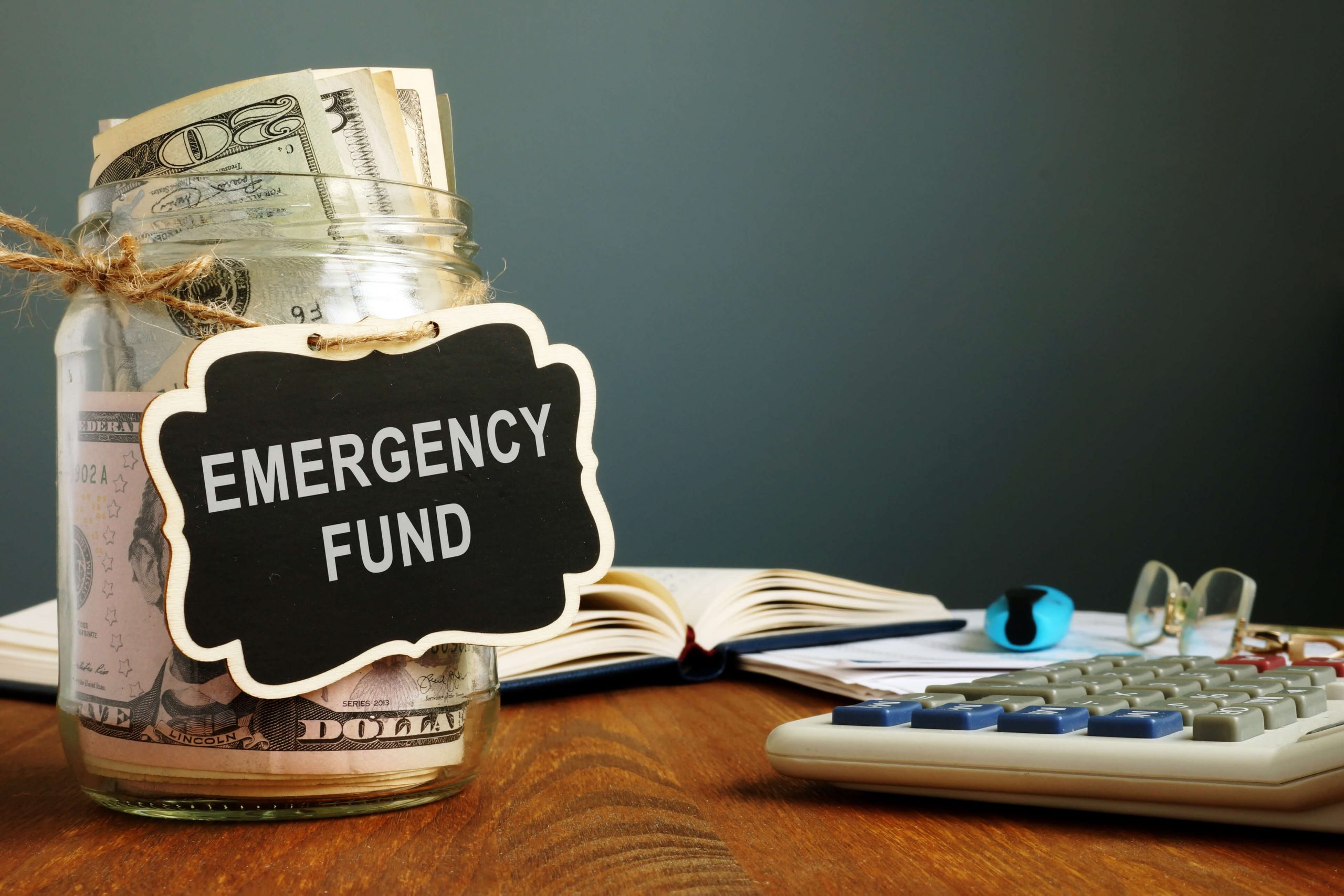If your car unexpectedly broke down tomorrow, and you were faced with a $1000 repair bill, would you be able to pay the total amount from your savings? If your answer is No, you’re not alone. Sixty-one percent (61%) of Americans would be unable to cover an unexpected $1000 expense with their savings, according to a Bankrate.com survey.
The best way to prepare for these financial bumps in the road is with an emergency fund. Even if you have created a budget to manage your regular monthly expenses, having a dedicated emergency fund is essential.
An emergency fund holds money strictly for unexpected financial events such as:
- Loss of income
- Home repairs
- Medical bills
- Car repairs
- Death in the family
How to start an emergency fund?
Setting up an emergency fund is a simple process, but saving is the key to success. Saving a manageable amount of money from each paycheck and setting it aside will eventually grow into a large amount for you to have in reserve to cover future expenses.
Determine your emergency fund savings goal
Establish a goal as to how much money you want to put into your emergency fund. Start with a target goal equal to three months of your current salary so that you have a financial cushion to pay your regular expenses in case of job loss. If you are the sole earner for your family or self-employed, you should aim to cover six to nine months of expenses in your emergency fund.
Track your monthly income and expenses to build your emergency fund
To decide how much you can add to your emergency fund each month, you need to track your income and monthly expenses. Start with your net income (how much you earn after taxes), then deduct the total of your regular monthly expenses. With whatever you have leftover after monthly expenses, decide how much you want to save towards your emergency fund to reach your goal. This amount is in addition to your regular savings and retirement accounts. By tracking your monthly income and expenses, you can calculate how long it will take to reach your goal based on the amount you save every month.
Hold your emergency funds in an accessible place
The whole point of having an emergency fund is to access the money in case of an emergency. However, you don’t want the money to be too accessible for frivolous spending. Create a separate savings account, ideally one that is earning you interest on your savings. Setting up your emergency fund in a liquid account allows you to pull the money out at any time without penalty.
Reduce the temptation to access your emergency fund
Once you have identified how much money you can dedicate to your emergency fund without negatively impacting your other savings goals, set up a direct deposit to automatically transfer that amount to the account you’re using for your emergency fund. To help reach your goal sooner, save any unexpected income, such as your tax refund, bonus, or any winnings directly to that account, too.
Benefits of an emergency fund
Saving for an emergency fund is savvy strategic planning and keeps you financially prepared for the future. In addition, to being financially prepared, there are several benefits to setting up an emergency fund.
-
Having an emergency fund decreases impulsive spending
Often, we get stuck making impulsive spending choices on products that we do not need. To pay for these products, we pull out our spending money, but you could benefit more by saving that money to pay for bills. Setting up your emergency fund in a savings account, separate from your everyday banking accounts, prevents you from pulling money out and participating in impulsive spending. Your emergency fund money will not be as available to you as your debit card, avoiding any urge to spend it on unnecessary items.
-
Having an emergency fund decreases financial stress
Having a fund separate from the rest of your money provides peace of mind that you will be prepared to cover an expected expense. Sometimes it can be stressful thinking of all the money you give towards paying bills. The money you saved in your emergency fund can be used for when you need to take out additional funds to pay bills. Similarly, the funds can be used if you ever find yourself in a situation where you need to access extra money right away. Your emergency fund acts as a security blanket, protecting you against financial uncertainty.
-
Having an emergency fund helps prevent debt increases
Before setting up your emergency fund, you were most likely relying on credit cards or loans to assist you in financial emergencies. However, the more you utilize loans and credit cards, the higher your debt will become. Having a large amount of debt will take a long time to pay off, and you may struggle to cover the costs. Emergency funds can help prevent your debt from increasing because you will rely on the money you saved rather than credit cards or loans.
-
Having an emergency fund provides financial stability
Starting an emergency fund is an excellent step towards achieving financial stability. This nest egg will provide peace of mind that you can meet the financial curveballs that life throws your way.




